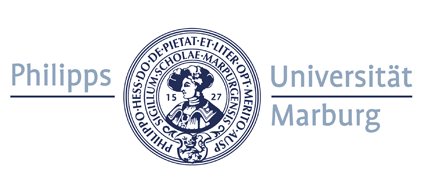25.03.2025 Better understand, recognize, and treat depression and bipolar disorders
Research consortium under the direction of the University of Marburg - Prof. Dr. Tilo Kircher is spokesperson of the Collaborative Research Center SFB/TRR 393

Upon intensive preparations and with great commitment from all project members, the first participant was enrolled in the cohort of the newly established Collaborative Research Center (SFB/TRR) 393 “Trajectories of Affective Disorders“ in Marburg at the beginning of March 2025.
This Collaborative Research Centre is a research consortium funded by the German Research Foundation (DFG) with 13.8 million euros until mid 2028, in which in addition to the University of Marburg as coordinating university (spokesperson: Prof. Dr. Tilo Kircher, University Hospital, Department of Psychiatry and Psychotherapy), scientists from the TUD Technical University Dresden, the Universities of Münster and Bonn and the Karlsruhe Institute of Technology are involved. Together, the members of the consortium, which will run for up to twelve years, are pursuing the overarching goal of better understanding, recognizing, and treating the course of affective disorders (depression and bipolar disorder) to significantly contribute to the treatment and prevention of these disorders.
The social challenges associated with mental illness are constantly increasing. In Germany, around 25 percent of adults meet the criteria for a mental disorder within one year. Affective disorders typically start between the ages of 20 and 30. In addition to acute symptoms, they affect the well-being, psychosocial functioning and socio-economic situation of affected individuals for decades. The course of the disease varies greatly. Typically, symptoms occur in phases that are many years apart, with years and decades of mental health in between. However, the exact causes for the recurrence of symptoms, phases of improvement and chronification have not been sufficiently investigated.
This is precisely where the consortium sets in and investigates which environmental, psychosocial and (neuro)biological factors predict the course of the disorder, which cognitive-emotional and neurobiological mechanisms underlie relapses and remissions and how targeted therapies based on these mechanisms can be developed. To this end, cell phone data and many other biological and clinical parameters from a large patient cohort will be continuously collected over a period of two years and analyzed using state-of-the-art methods such as machine learning.
By enrolling the first participant - meaning the achievement of this important milestone - the recruitment of further participants will start immediately. Anyone interested in taking part in the study can find further information on the SFB/TRR 393 homepage at https://sfb-trr393.de.
Prof. Dr. Thomas Nauss, President of the University of Marburg:
“With the enrollment of the first patients, the decisive phase of the SFB/TRR 393 has now started - a milestone for psychiatric and psychological research. The University of Marburg and its partner universities are pooling state-of-the-art technologies and clinical expertise to better understand and specifically treat affective disorders. This pioneering large-scale project opens up new possibilities for personalized therapies and improves the long-term care of those affected. The interdisciplinary collaboration strengthens international cutting-edge research and sets new standards in diagnostics and therapy. We are delighted that things are now getting underway and are proud to be leading this important project as the speaker university together with Prof. Tilo Kircher.”
Prof. Dr. Michael Hertl, Dean of the Faculty of Medicine at the University of Marburg:
“It is a great success for the Marburg University Medicine that major diseases of our society, depression and bipolar disorders, are being comprehensively investigated under Marburg´s leadership in a Transregio CRC, from basic research and digital imaging to clinical and patient-related measurement parameters. Marburg is thus setting an example as a university-based, translational research focus for affective disorders in Germany and beyond.
Dr. Gunther K. Weiß, Chairman of the Management Board of the University Hospital Giessen and Marburg, and Dr. Sylvia Heinis, Managing Director of the University Hospital Marburg:
“It is a great honor and pleasure for us at the University Hospital Marburg to be able to participate in such an important Collaborative Research Center. We are proud that the Department of Psychiatry and Psychotherapy, together with the partner institutions in Bonn, Dresden, Karlsruhe and Münster will now be able to make an important contribution to further research into the clinical profiles of depression and bipolar disorder. The prediction of possible disease relapses using smartphone data and the new, targeted, personalized therapies - aimed at the specific disease mechanisms of each individual patient - are already concrete improvements for patient care in Marburg and the partner locations. We wish Prof. Kircher and his team great success and all the best.”
Source: Joint press release of the University of Marburg and the University Hospital Giessen and Marburg
Contact
Prof. Dr. Tilo Kircher
Tel.: 06421 58-66218
Mail: psychiat@med.uni-marburg.de
Faculty of Medicine
University of Marburg





